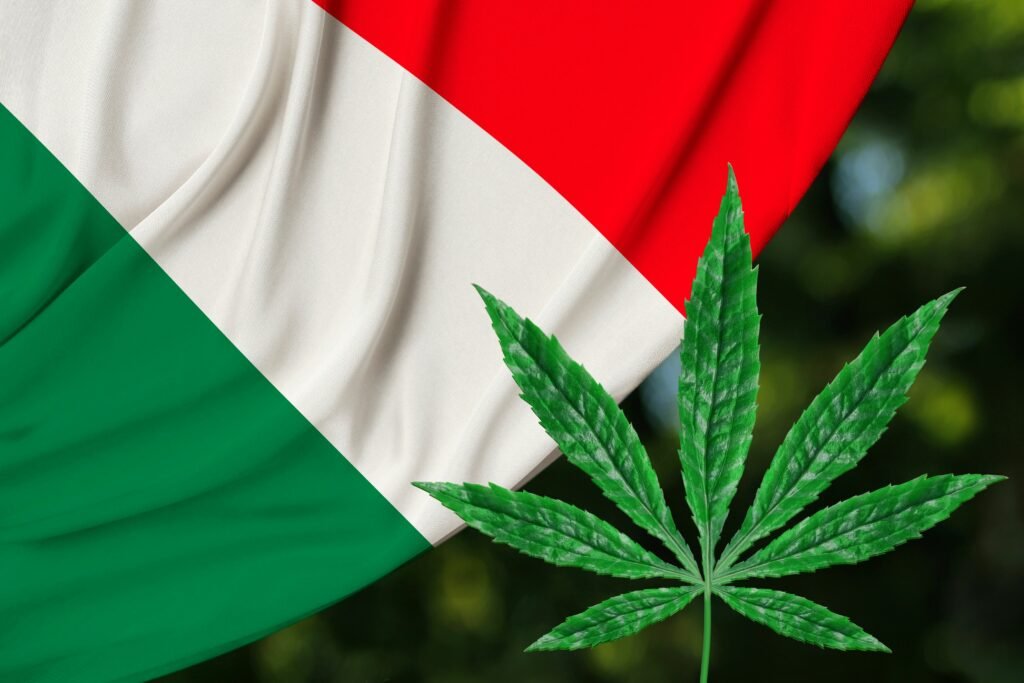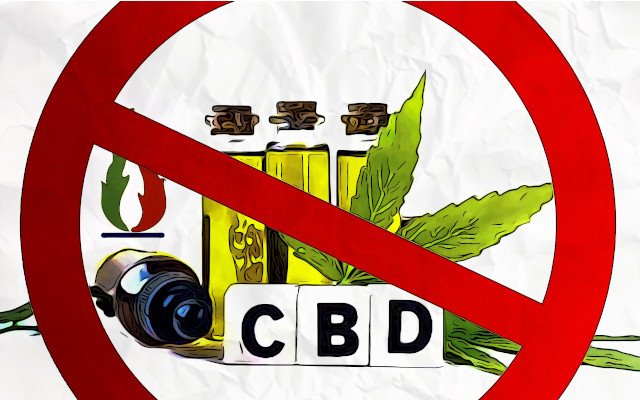The Italian government, led by Prime Minister Giorgia Meloni, is proposing a controversial amendment to the Security Bill that would severely impact the industrial hemp sector. This amendment seeks to ban hemp flowers in various forms, including import, processing, possession, and sale. The proposal is drawing criticism from industry stakeholders and experts who warn of significant economic and legal repercussions.
The proposed ban targets hemp flowers due to their association with CBD and other cannabinoids. However, the amendment goes beyond psychoactive substances and encompasses all hemp flower-derived products, including those used in herbal medicine, cosmetics, and food supplements. Federcanapa, a leading trade group in the hemp industry, has condemned the amendment as a “grotesque crackdown” that would stifle economic activity and innovation in the sector.
The potential impact of this legislation is substantial. It could lead to the closure of approximately 3,000 businesses and the loss of 15,000 jobs, according to some estimates. Additionally, the ban would hinder exports of hemp flower and flower-based products, further harming the industry’s growth potential.

Legal experts argue that the amendment contradicts European Union law, which has explicitly recognized the legality of CBD and other non-psychoactive cannabinoids derived from hemp flowers. This inconsistency raises concerns about potential infringement procedures against Italy by the European Union.
The Italian government’s stance on hemp and its derivatives has been inconsistent in recent years. In 2020, the Ministry of Health briefly classified CBD as a narcotic before reversing the decision. Earlier this year, a court annulled a decree that classified hemp as strictly medicinal, citing conflicts with European law.
The proposed amendment is part of the broader Security Bill, a sweeping piece of legislation that addresses various issues, including law enforcement, immigration, and public demonstrations. Critics argue that the inclusion of the hemp ban in this bill is inappropriate and could lead to harsher criminal penalties for violations.
As the amendment undergoes scrutiny by parliamentary commissions, industry stakeholders are urging legislators to reject it. They emphasize the economic and social benefits of the hemp industry and highlight the legal conflicts with European Union regulations. The fate of this amendment remains uncertain, but its potential impact on the Italian hemp sector and its compliance with European law is a subject of intense debate.
The Italian government, led by Prime Minister Giorgia Meloni, is proposing a controversial amendment to the Security Bill that would severely impact the industrial hemp sector. This amendment seeks to ban hemp flowers in various forms, including import, processing, possession, and sale. The proposal is drawing criticism from industry stakeholders and experts who warn of significant economic and legal repercussions.
The proposed ban targets hemp flowers due to their association with CBD and other cannabinoids. However, the amendment goes beyond psychoactive substances and encompasses all hemp flower-derived products, including those used in herbal medicine, cosmetics, and food supplements. Federcanapa, a leading trade group in the hemp industry, has condemned the amendment as a “grotesque crackdown” that would stifle economic activity and innovation in the sector.
The potential impact of this legislation is substantial. It could lead to the closure of approximately 3,000 businesses and the loss of 15,000 jobs, according to some estimates. Additionally, the ban would hinder exports of hemp flower and flower-based products, further harming the industry’s growth potential.

Legal experts argue that the amendment contradicts European Union law, which has explicitly recognized the legality of CBD and other non-psychoactive cannabinoids derived from hemp flowers. This inconsistency raises concerns about potential infringement procedures against Italy by the European Union.
The Italian government’s stance on hemp and its derivatives has been inconsistent in recent years. In 2020, the Ministry of Health briefly classified CBD as a narcotic before reversing the decision. Earlier this year, a court annulled a decree that classified hemp as strictly medicinal, citing conflicts with European law.
The proposed amendment is part of the broader Security Bill, a sweeping piece of legislation that addresses various issues, including law enforcement, immigration, and public demonstrations. Critics argue that the inclusion of the hemp ban in this bill is inappropriate and could lead to harsher criminal penalties for violations.
As the amendment undergoes scrutiny by parliamentary commissions, industry stakeholders are urging legislators to reject it. They emphasize the economic and social benefits of the hemp industry and highlight the legal conflicts with European Union regulations. The fate of this amendment remains uncertain, but its potential impact on the Italian hemp sector and its compliance with European law is a subject of intense debate.




